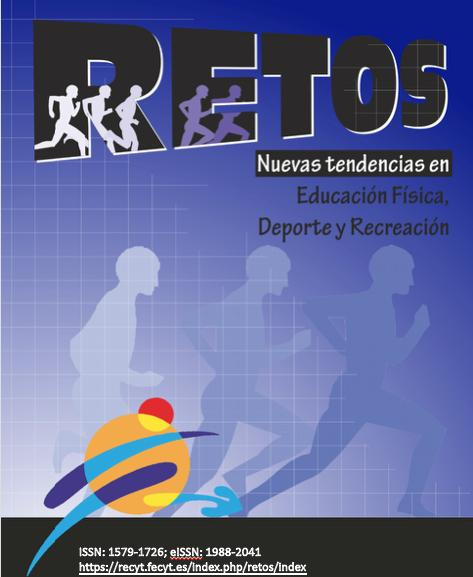An analytical study of the use of VAR technology and its relationship to the psychological hesitation of referees in the Iraqi Professional League
DOI:
https://doi.org/10.47197/retos.v66.114183Keywords:
VAR technology; psychological hesitation; professional league; football.Abstract
Objective: Studying the opinions of referees on the use of VAR technology in Iraqi stadiums, and the extent of its impact on their decisions during matches, in addition to identifying their level of psychological hesitation.
Research methodology: The descriptive approach was adopted in two ways survey and correlation. The research community was represented by the referees of the Iraqi Professional Football League, numbering (80) referees. The researcher chose all referees as a sample, as the sample amounted to (80) referees, i.e. a percentage of (100%) of the community. After that, the researcher divided the selected sample into a survey consisting of (10) players. To build the (VAR) questionnaire and find the scientific foundations for the psychological frequency scale, (80) referees were chosen.
Result: Through the data of the targeted sample and comparing the results of the weighted average, it is clear that the level of the obtained scores varied in (4.45 - 2.54), i.e. with a good rating, and this indicates the good value of the level of (VAR) technology from the referees’ point of view. From reviewing the paragraphs of the final questionnaire, we note that (VAR) technology supports and assists the match referee in making his decisions, and at the same time we should not marginalize the role of the referee and (VAR) becomes the one who makes the decision on behalf of the referee.
Conclusions: The VAR technology has clearly and noticeably contributed to the development of the game of football and the absence of refereeing errors in matches by a percentage that may exceed (95%) in matches.
References
Hani, A. T., Khudhair, M. O., & Jasim, H. T. (2022). Aggressive Behavior and Its Relationship To the Phenomenon of Bullying Among Young Football Players Aged (17-19) Years. Revista Iberoamericana de Psicologia Del Ejercicio y El Deporte, 17(6), 399–401.
Hani, A. T., Mohammed, K. S. (2019). The contribution of mental toughness to the performance level of referees of the Iraqi Premier League Football Clubs. Journal of Physical Education, 30(1), 335–356. https://doi.org/10.37359/JOPE.V30 (1)2018.338
Ali, N. K., Hameed, S. A., & Ibrahim, S. (2020). The effect of attacking tactical skill exercises in the skills of dribbling and shooting for youth football players. International Journal of Psychosocial Rehabilitation, 24(03).
Jasim, H. T., Abed, S. R., & Ibrahim, S. S. (2023). Psychological Flexibility and Its Relationship to Competition Anxiety among Coaches of Iraqi First-Class Football Clubs. Revista Iberoamericana de Psicología Del Ejercicio y El Deporte, 18(4), 368–370.
Muhannad, T. A. (2016). The Effect Of A Teaching Program Using The Six Thinking Hats in Learning Spiking In Volleyball for Physical Education & Sport Sciences College Students. Journal of Physical Education, 28(2).
Talib Jasim, H., Hayder Hussein, A., & Saad Ibrahim, S. (2022). ADMINISTRATIVE CLIMATE AND ITS RELATIONSHIP TO PSYCHOLOGICAL STRESS AMONG WORKERS IN BAGHDAD PREMIER LEAGUE FOOTBALL CLUBS. Iberoamerican Review of Psychology Del Ejercicio y El Deporte, 17(1), 1.
Hani, A. T. (2021). The Effect of Counseling Program on Improving Psychological Resilience for First Class Soccer Referees. Journal of Physical Education, 33(1), 1–21. https://doi.org/10.37359/JOPE.V33 (1)2021.1113
Jasim, H. T., Hussein, A. H., & Ibrahim, S. S. (2021). Administrative climate and its relationship to psychological stress among workers in Baghdad Premier League football clubs. Revista Iberoamericana de Psicología Del Ejercicio y El Deporte, 16(6), 1–3.
Hashem, N. Y., Al Edhary, D. F., Radhi, M. N., & Hmeid, M. G. (2022). The effect of dynamic lactic exercises in the maximum oxygen consumption and lay-up shot endurance of under-20 basketball players. SPORT TK-Revista EuroAmericana de Ciencias Del Deporte, 2.
Shaalan, R. A., Aboode, M. A., & Radhi, M. N. (2022). The effect of qualitative exercises in developing motor compatibility and learning the skill of volleyball jump set. SPORT TK-Revista EuroAmericana de Ciencias Del Deporte, 5.
Shaker, A. S., Tuama, H. M., & Radhi, M. N. (2022). The effect of using e-learning technology in learning the skill of clean and jerk in students of Physical Education and Sports Sciences. SPORT TK-Revista EuroAmericana de Ciencias Del Deporte, 4.
Downloads
Published
How to Cite
Issue
Section
License
Copyright (c) 2025 Ahmed Thare Hani, Mohannad Talib Abd, Samer Saad Ibrahim

This work is licensed under a Creative Commons Attribution-NonCommercial-NoDerivatives 4.0 International License.
Authors who publish with this journal agree to the following terms:
- Authors retain copyright and ensure the magazine the right to be the first publication of the work as licensed under a Creative Commons Attribution License that allows others to share the work with an acknowledgment of authorship of the work and the initial publication in this magazine.
- Authors can establish separate additional agreements for non-exclusive distribution of the version of the work published in the journal (eg, to an institutional repository or publish it in a book), with an acknowledgment of its initial publication in this journal.
- Is allowed and authors are encouraged to disseminate their work electronically (eg, in institutional repositories or on their own website) prior to and during the submission process, as it can lead to productive exchanges, as well as to a subpoena more Early and more of published work (See The Effect of Open Access) (in English).
This journal provides immediate open access to its content (BOAI, http://legacy.earlham.edu/~peters/fos/boaifaq.htm#openaccess) on the principle that making research freely available to the public supports a greater global exchange of knowledge. The authors may download the papers from the journal website, or will be provided with the PDF version of the article via e-mail.


